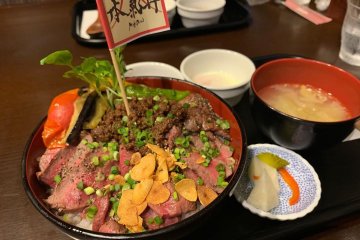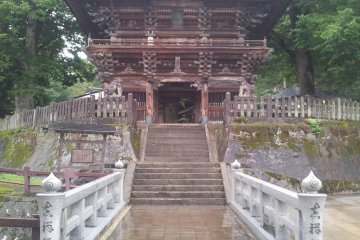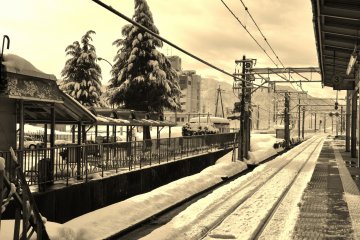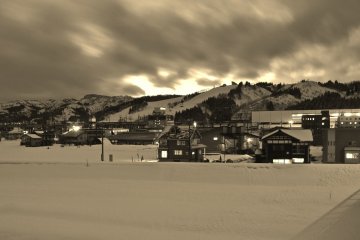When I was 24 years old, early days of my career, I never ventured much outside of my hometown Mumbai, where 25 degrees Celsius are considered a cooler temperature. Endless traffic jams are the norm and snowfall implies exotic locations seen in Bollywood films. During my childhood we simply could not afford to do trips to "dream" locations with a lot of snowfall. So you might imagine my excitement when I heard that my first assignment in Japan in 1999 should in be a pretty cold location (at least in winter) called Urasa in Niigata Prefecture.
I was not at all prepared to know what to expect and in Tokyo it was already quite cold when I started my first journey on the Joetsu Shinkansen to Urasa. The weather was clear with no snowfall when we started, and even until 30 minutes before we should arrive at Urasa station, there was no sign of snowflakes. Then the bullet train went inside a tunnel, only to come out on the other side to give me the shock of my life. Seriously, rather than a positive reaction, I was shocked to see that pile of snow and white as far as I could see. That was something, well, whatever... I almost panicked, and I am reliving this experience even now as I write this 14 years later...
Together with my boss I got off at Urasa Station and what I saw was meters of snow piled up all around, with not a person in sight. We made our way through the snow, pulling the bags to our apartment. Although it was just 2 minutes from the station it was sufficient to make our feet cold since we had not prepared ourselves with the right shoes.
There are two train lines passing through Urasa Station, the Joetsu Shinkansen (bullet train) and the local JR Joetsu line, the latter connecting to Nagaoka on one end and Muikamachi on the other. The frequency of this local line is quite limited, but there is a schedule that can help you with your planning.
The station itself has good facilities to rest and the waiting room is a great place to keep yourself warm until the train arrives. An elaborate tatami-style sitting arrangement in a waiting room in Tokyo would be quite unique; however, it is a regular feature in remote locations like Urasa. The station is ideal for tourists who are looking to get away from the ski-centric crowds of the nearby Gala-Yuzawa resorts and who rather want to enjoy a peaceful place to rest and enjoy the snowfall. A bank, a post office and ramen shop are all are in the vicinity of the West exit of Urasa Station. About a 5-minute walk from the station there is the Hotel Okabe, where you can get reasonable accommodation and bus services to the surrounding ski slopes. It's also nice in autumn, when there is a great variety of colors on the nearby hills. A bus from Urasa Station also connects to the Jusco Shopping Mall in Muikamachi, although the frequency of this service is very low.
One thing which will surprise most visitors is, that there are a lot of foreigners around and the station staff speaks good English and they have English and other foreign language material to share. That's mainly because of the presence of the International University of Japan (IUJ) in Urasa. I have fond memories of that campus, too, as my brother graduated from this university.
Urasa is also famous for its rice farming, and although it is pretty small, the little town has a few very nice places of interest throughout the year. The highlight however takes place on the third of March every year, when the Urasa Bishamondou Naked-Man Festival is conducted at the nearby shrine, just a 5-minute walk from the station. This is maybe the best time to visit the shrine; it's a festival full of action—as the name might suggest!











